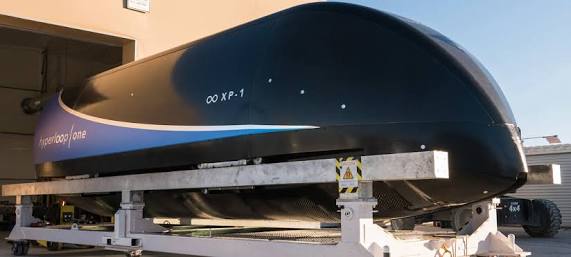Virgin Hyperloop One Sets New Speed Record
The recently rebranded Virgin Hyperloop One broke its previous speed record a few days ago. The test run conducted was the third one this year.
The unmanned magnetically-operated pod managed to reach a top speed
of 240 mph and obviously, this is a significant achievement as its
previous record stood at 192 mph.
If the ideal conditions are present and no problems are encountered,
in theory, The Virgin Hyperloop One is projected to reach a maximum
speed of 700 mph.
Track Extension Required
An additional 1.2 miles of track will supposedly help the test
vehicle achieve its target speed. Nevertheless, the company seems to be
happy with latest results of their magnetic-propulsion experiment.
It is currently unknown, however, if the team's additional track
requirements will get the additional funding in order to push their
tests even further.
Scandal Rocks The Leadership
Chairman and co-founder of Hyperloop One prior to Virgin's involvement, Shervin Pishevar, recently took a leave of
absence due to allegations of sexual misconduct. The accusations
apparently involved unwanted advances and sexual harassment after
several women reported him.
Pishevar continues to deny the accusations and there is no word if he plans to return to his former team.
Along Came Virgin
Virgin Hyperloop One's current chairman is none other than Richard Branson, Virgin's co-founder. Branson helped secure
an additional investment that helped the startup continue their
operations. He was awarded a seat on the company's board of directors as
it rebranded itself to reflect his other firm.
Friction Is The Enemy
For the experimental transportation system to travel at such high
speeds with minimal energy, all possible sources of friction must be
minimized. Magnetic propulsion appears to be ideal since there is no
contact between the tracks and the test pod.
Air resistance is another factor that contributes to speed reduction,
thus, the specially-made tracks operate within a depressurized tube.
The controlled environment mimics the air pressure found 200,000 feet
above the ground.
As the atmosphere draws closer to near-vacuum, it should
theoretically allow the pod to quickly move at speeds close to that of a
commercial airliner.
Forward Thinking For Innovation
As it stands, the current state of the components still have a few
challenges like the track length, depressurization speeds, and more.
Elon Musk, Tesla Motors and SpaceX CEO, is apparently credited for
his vision involving a Hyperloop system wherein a series of low-pressure
tubes can, in theory, transport several pods at speeds of 760 mph.
Its concept and goal are to be able to provide a sustainable and energy-efficient transport system for the future.
Several companies have reportedly attempted to recreate this
system. However, it seems that the Virgin Hyperloop One is currently
the only working prototype that comes close to Musk's vision.
Originally posted on Techtimes
Three exciting announcements today in testing, funding, and leadership! https://t.co/Uw5kLzE5NM— Hyperloop One (@HyperloopOne) December 18, 2017




Comments
Post a Comment